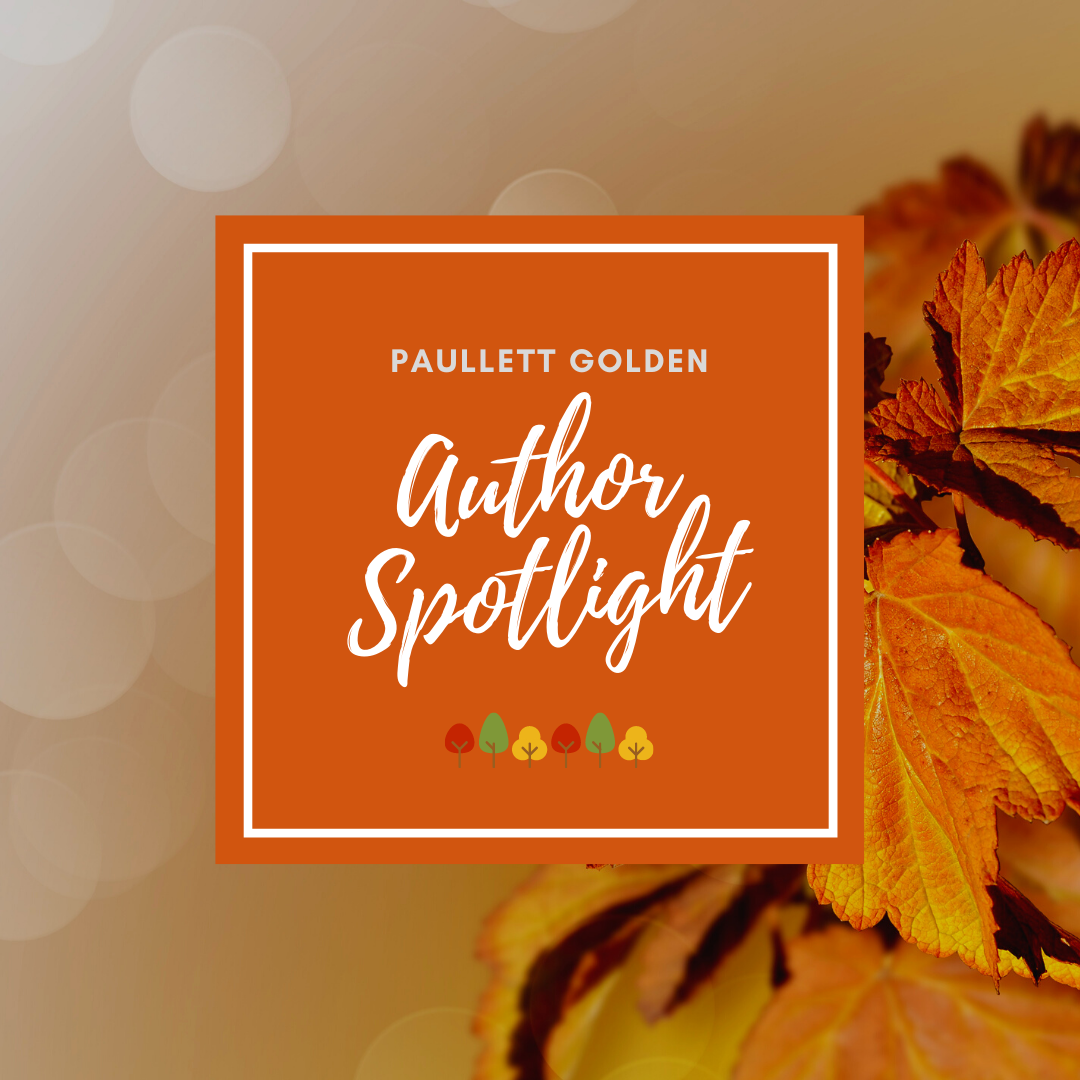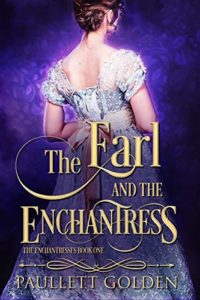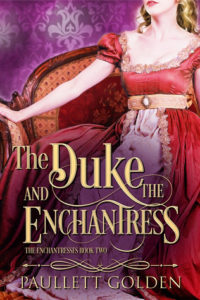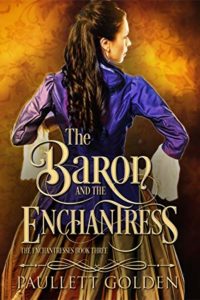
Hello Everyone!
Paullett Golden was gracious enough to take time from her busy schedule to do a bit of a Q&A with me as part of my little one year blogoversary celebration! Paullett’s The Earl and the Enchantress was one of the very first review copies I took on after deciding to try my hand at book blogging and
I have had the pleasure of reviewing more of Paullett’s work over the past year!
I wanted to take the opportunity to post an author spotlight so I had a solid excuse to harass chat with Paullett about her journey as an author. I hope you enjoy this as much as I did and make sure to check out The Earl and the Enchantress, The Duke and the Enchantress, and, my favorite to date, The Baron and the Enchantress.
About the Author
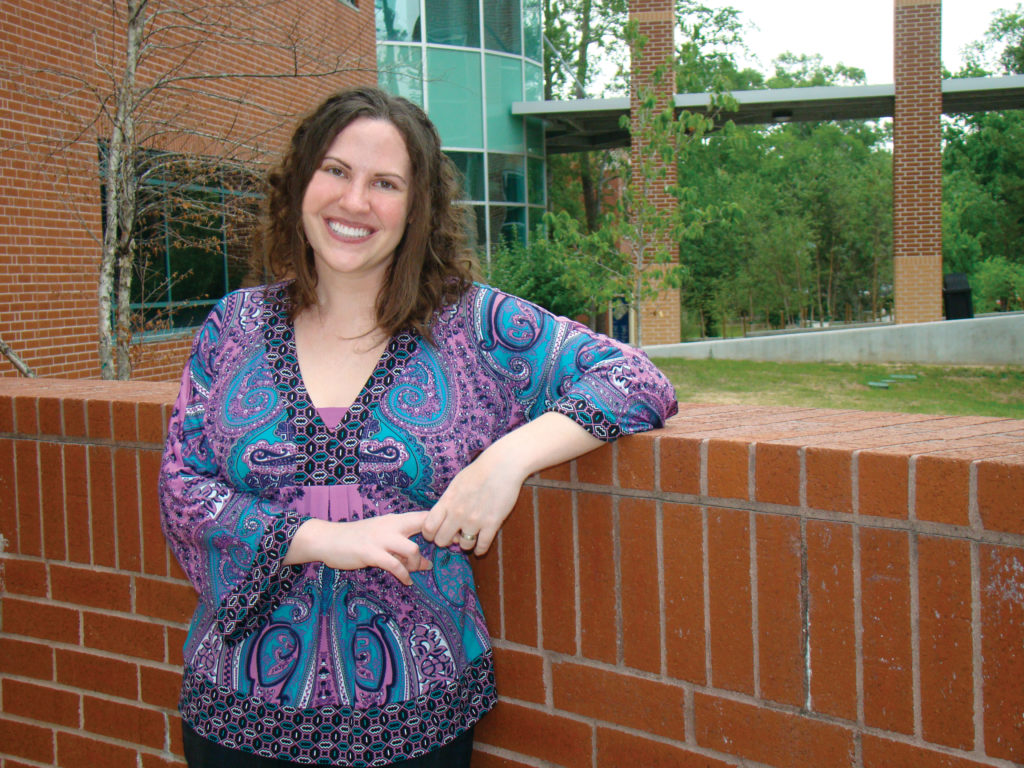
Celebrated for her complex characters, realistic conflicts, and sensual love scenes, Paullett Golden puts a spin on historical romance. Her novels, set primarily in Georgian and Regency England with some dabbling in Ireland, Scotland, and France, challenge the norm by involving characters who are loved for their flaws, imperfections, and idiosyncrasies. Her stories show love overcoming adversity. Whatever our self-doubts, love will out.
Her debut novel, The Earl and the Enchantress, has hit the Amazon bestseller list multiple times and has won a Reader Views Literary Award.
By day, Paullett is a Professor of English, teaching argumentation, composition & rhetoric, technical writing, and occasionally creative writing. She enjoys spending time in the places that inspire her stories. While some travel is for work, most travel is for story research to get a sense of the land, the culture, the people, and the history.
Her hobbies beyond writing include butterfly and pollinator gardening, orchid rescuing, exotic plant collecting, classic car showing, drag racing, motorbike cruising, music performing, and feathered and furry children raising.
Follow:
Q&A with Paullett
What research areas have you delved into to prepare for your books? Which was your favorite?
I have quite a few different tiers for research, some including diving into subjects I’m unfamiliar with and teaching myself everything I might possibly learn about the subjects, such as hippotherapy, spontaneous spinal cord hematoma, medical equipment found in 18th century hospitals, types of hospitals, etc. Much of my research is as historical as it can be with me reading medical journals, diaries, and publications from the era or around the era.
The shallowest research I do is looking up phrase and word etymology, object history (Did it exist!?), and the like. I can stumble on the most interesting things with this kind of browsing. Recently, I dove into the types of toys one might find in a late 18th century nursery and what candlelight might have been like for a member of gentry with a modest-income (Light strength? Smell? Candle colour? Wick life? etc). My risk is falling down the rabbit hole of research. I’m notorious for this. I’ll be mid-scene, maybe even mid-conversation, and I’ll dash off to see if a certain object existed at the time only to end up in a 2-hour rabbit hole of historical artefacts!
I love history, and I love learning about it. I would like to say my favourite area is anything that involves learning about the culture and life at the time, but anything related to the time helps me better envision that, even if it’s something I had not really expected. For instance, learning if a character wore gloves in her own home to greet visitors during the visiting hours vs. learning how a physician might perform surgery with the available equipment and knowledge at the time. Both give me a taste for the time and culture!
As a writer, what would you choose as your mascot/avatar/spirit animal?
A bird of prey, perhaps an eagle. As a writer, not only do I have to see the big picture of the world below, I also must spot the intricacies. I must see both the forest and the trees, right down to the smallest of creatures on the forest bed. The vision of a bird of prey would depict that need well. The idea of a winged bird appeals, as well, since that’s similar to how I feel when writing where I’m soaring from one life to the next, living the lives of my characters.
Has your writing process changed since The Earl and the Enchantress was released?
Yes. Definitely. In unexpected ways. The Earl and The Enchantress was crafted over a series of weeks. Before I ever put pen to paper, I had scenes and conversations sketched. It would go a little something like this–I would be in the store when a conversation between characters would click. I would have no idea what the context was, but there was the conversation, clear as day. I would stand there in the aisle, arms draped over the trolley, tapping out the scene in my phone. When I sat down to write the story, I had a basic arc with hundreds of sketched scenes and conversations that I had to place on the arc, and then somehow piece together. It seemed like a brilliant process at the time because by the time I sat down to write, the book was mostly written. It took me less than a week to write it.
The same process happened with The Duke and The Enchantress. The changed happened with The Baron and The Enchantress. I had already collected conversations and such, but I then put the writing on hold so I could focus on publishing the first two books. I also got distracted with the first book of the next series and ended up mostly finishing that one, as well as the sketching of the other two books in that trilogy. By the time I circled back for The Baron, I felt a bit lost and overwhelmed by all of my notes. I ended up scrapping most of those notes and scenes. I ended up writing the book from start to finish in a chronological fashion, following the original arc but with different scenes and conversations than planned. I don’t think I’ve ever written anything straight through, so it was a unique experience for me.
I’m finding the same thing happening as I work through The Colonel and The Enchantress. I will say that working straight through is much more difficult to me. I start a new chapter, and I’m staring at a blank page; whereas, with The Earl I really enjoyed starting a new chapter to find a dialogue already waiting to be worked into a scene. The difference, really, is in the plotting process–do I float around for a few weeks and just plot in my head before writing, or do I sit down and start writing? That’s the difference in styles. Which is better? Who knows…. I preferred how I wrote The Earl, but I like how The Baron reads better than I do The Earl, so who knows?
Do you have any books or authors that you recommend?
Romancing The Beat is a great little book for folks getting started in the genre. When I first got started, I didn’t do a lot of research from books like that. Instead, I had a stack of books that I really liked within the genre and a stack of ones I didn’t like, and I analysed all of them. I sketched the arc, the inciting events, the character development, etc. to get a feel for the rhythm and pacing of what I personally enjoyed and what I personally did not enjoy. I found that process to be more helpful than any book on writing. As far as reading, I recommend any books that are popular at the time of the novel. What would characters be reading in 1790? Knowing what’s in their head and what they enjoy gives a lot of insight into their values, morals, beliefs, and culture.
As far as modern books in the genre, I’ll always recommend Mary Balogh. When I set out to write the themes I had in mind, I was desperate to find books of similar themes because I didn’t know if readers would want to read what I had to write. If there’s no audience, what’s the point? Author after author, book after book, I was frustrated to find that the themes I wanted to read and write just weren’t there. It was disheartening. And then I came across Balogh. It was a joyous moment. She wrote about similar themes, though in her own way, and that gave me hope that there is an audience out there who does want to read these themes. Her fan base gave me the motivation to write.
How many unpublished or half-finished books do you have on your desk?
A fair few. I won’t confess! Just hang on for the ride as I continue to publish these tomes!
I will advise writers not to abandon a book to start on another one. If you’re working on 5 different projects at one time, you do none of them justice. There will be carry overs from one to the next, and the heart of each is lost. It takes a great deal of focus to be inside a character’s head and stay true to that character. By jumping projects, you’ll find the character taking actions that he wouldn’t have otherwise taken because another character from another project has bled through. Do I feel the pull when I’m working on something? Definitely. I pause to make notes and best capture the vision, and then I go right back to focusing on what needs to be focused on. Too many projects go unfinished otherwise, and there’s a loss of cohesion and vision. If someone says they’ve been working on the same project for decades, it’s because they’ve split themselves in too many directions. Sit, focus, write, finish.
What challenges have you experienced that you didn't anticipate when you first started your journey to published author?
Marketing is certainly a challenge I didn’t expect. I didn’t realize the scope when I first set out. I envisioned me tapping on the keyboard day in and day out, not carving out entire days and hours of each day to do things like social media posts, newsletters, review comments, etc. Don’t get me wrong, I enjoy marketing, especially interacting with readers, but it’s just not something I expected to do. I suppose I had this vision of you build it and they will come, not realizing there’s a kind of “maintenance” involved in the process. Once you have a rhythm, it’s more enjoyable than challenging, but it was an initial challenge. “What do you mean I need a social media presence!?” Haha.
To date, what was your hardest scene to write?
The first inciting incident in The Colonel and The Enchantress. It’s a short scene, but it was difficult to write. The actual tapping of the keys was steady and “easy,” but it was difficult because I was in the character at the time, living the experience with him so that I could capture his despair and fear. It was a frightening moment to feel that way, to feel so frightened and so helpless. I was in tears while writing that scene. Does any of it come across in the writing? We’ll let the readers decide, but it was a heart-wrenching scene to write.
What is your favorite part about writing historical romances?
I love exploring different kinds of relationships. There are so many different kinds of love and ways to love. I have the opportunity to explore that when writing hist roms. Not everyone is made for each other. Not everyone will make it as a couple despite the depth of their love. I have the joy of working through the psychology and magic of love to determine what does make someone perfect for another and what will make the couple a HEA success. Through the writing, I live every day in a loving romance! How wonderful is that?
Love isn’t isolated to the hero and heroine, either. We see different types of love from secondary characters, as well. The love of parents and children, siblings, cousins, employers and employees, friends, pets, etc. All different kinds, and all explored in different ways.
Have you ever considered writing in a different genre?
I think no matter what I write, it’ll always have a romantic element. I’d love to dive into romantic suspense/thriller and gothic romance, for instance. Knowing me, though, they’d all still be historical. If I’m going to escape in a book, I want to escape–a different time and place entirely.
What’s the most difficult thing about writing characters from the opposite sex?
I find more difficulty in writing members of the same sex. Ha! For starters, when I’m seeing the situation from a feminine perspective, I know what I would do, and so I have to fight that nothing to dig into what the heroine would do. It’s her story, not mine.
I see the male’s perspective quite clearly. The situation is straight forward, despite their internal conflicts. Women are complex creatures, though, with often conflicting and simultaneous emotions. Working my way into their minds is tough, especially when it’s not how I would react! I believe that’s one of the reasons I end up with so much internal dialogue of the heroines. I’m trying to figure out what in the world they’re thinking!
Books by the Author


